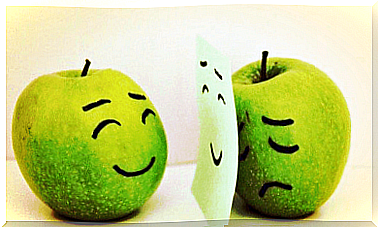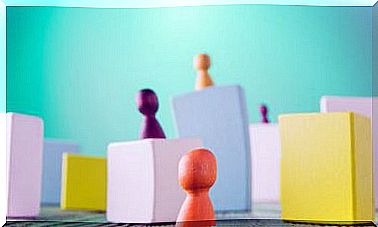Isolating Ourselves Makes Us More And More Lonely

When you think of a perfect plan, is nothing more appealing than staying home alone with a good book? Are you one of those who love, enjoy and treasure their loneliness as a valuable gift? This is completely valid and understandable since each person’s level of sociability and extraversion are different. However, it is important that you watch this pattern and take care that it does not become excessive, because isolating ourselves makes us increasingly lonely.
There are many reasons that can lead a person to isolate themselves from others, some of them are voluntary and others not so much. In any case, solitude can be such a safe place, such a pleasant refuge, that the tendency to isolation can grow without our realizing it. And this is something dangerous in that meaningful social relationships are essential for proper physical and mental functioning.

Isolation and loneliness
First of all, it is necessary to be clear about the difference between various concepts. Isolation consists of being physically or emotionally separated from others, it implies not being in contact, not being connected to others. This is something that we often do by choice. Introverts tend to isolate themselves for short periods of time to recharge the energy they have expended socializing, and this benefits them greatly.
However, all people need certain spaces of isolation at certain times in our lives. After an argument, in the face of the loss of a loved one or when we are faced with an important decision, we tend to withdraw into ourselves to calm and quiet the mind, reorder our ideas and think more clearly.
For its part, loneliness refers to a subjective, distressing and unpleasant feeling of not having anyone to count on. We experience loneliness when we feel that no one understands us, that no one cares about our well-being. In short, when we do not have the social and emotional support we need available.
So we can be isolated without feeling alone. In the same way, we can suffer the weight of loneliness while we are surrounded by people.
How does isolating ourselves make us more and more lonely?
However, although they are different concepts, certain studies have found that both feed into each other. In other words: isolating ourselves makes us increasingly lonely. This happens for several reasons :
- If you suffer from a certain degree of social phobia, isolating yourself allows you to avoid feared situations and avoid the anxiety they cause you. However, avoidance is the main reason why phobias perpetuate and remain over time. If you do not expose yourself to the anxiety stimulus, you deprive yourself of the opportunity to verify that it really is not as terrible as you thought and that, finally, you could handle it. Isolating yourself increases fear.
- The human organism has a great capacity for adaptation and if we isolate ourselves, we will get used to this way of life. This not only means that we will find it less and less uncomfortable and more pleasant to be alone, but also that we may lose part of our social skills. Thus, when we go to face the social world after a long time in isolation, we will not only perceive it as more dangerous, negative and threatening, but we will also be more socially awkward and obtain less satisfactory interactions. A panorama that will only lead us to want to isolate ourselves again.
- Social relationships must be cultivated and cared for so that they are maintained. If we get used to being excessively isolated, if we neglect the connection with our loved ones, it can deteriorate. In this way, when we want to return to social life, we find that we have burned the easier roads.

Find a balance
Severe and prolonged loneliness can cause serious damage to our physical and psychological health, and it is one of the main risk factors in many mental disorders. So whether you’re an introvert or going through a period of voluntary isolation for any other reason, try to be balanced.
Being alone is healthy and restorative, but in good measure. If you detect that you begin to perceive the social world as threatening or negative, if you feel that your relationships are being damaged, do not let the situation progress. Taking care of yourself is also taking care of your human connections.









